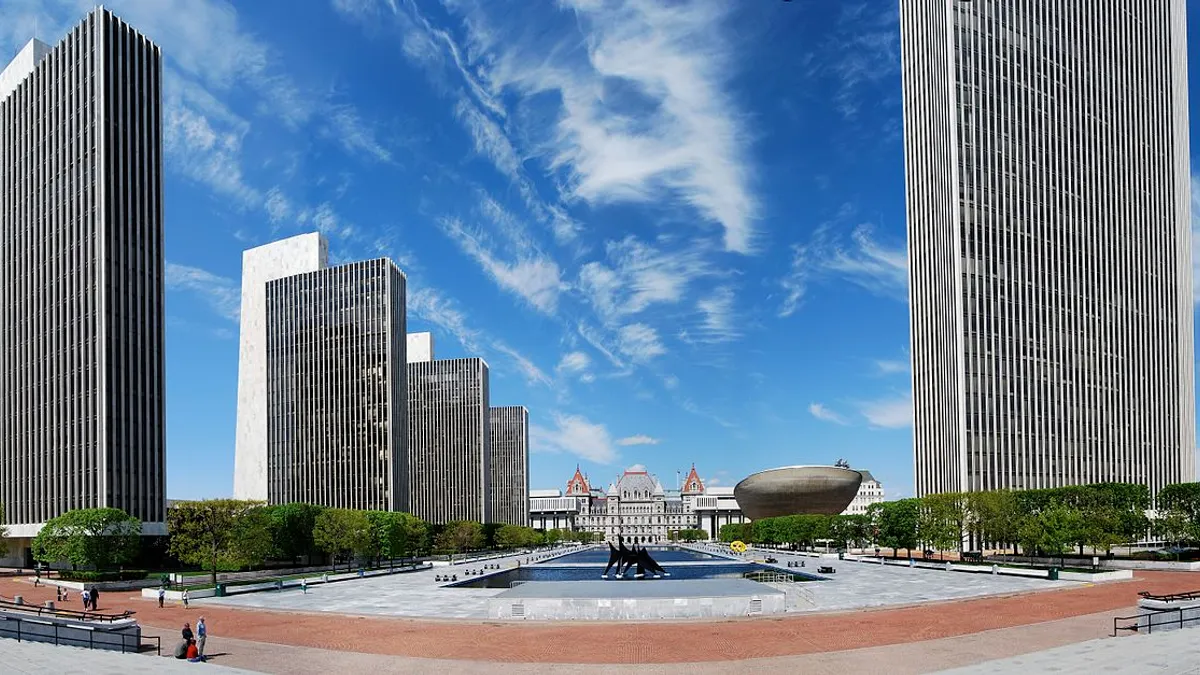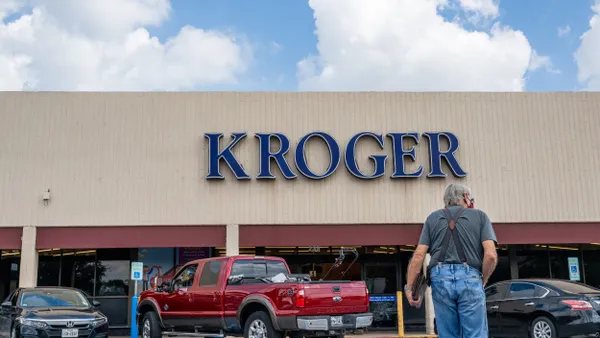Dive Brief:
- The New York state legislature passed multiple waste-related policy changes in its $175.5 billion FY20 budget deal over the weekend. A proposal from Gov. Andrew Cuomo to expand the list of accepted products in the state's container deposit program wasn't among them, but two other key items moved after years of effort.
- Effective January 2022, any establishment that generates more than two tons of food waste per week must separate material for donation and arrange for inedible scraps to be taken to an organics recycler within 25 miles. Temporary waivers will be granted by the state based on factors such as cost and distance.
- Effective March 2020, the state will prohibit distribution of any "plastic carryout bag" (with some exemptions) and allow cities or counties to implement their own five-cent fees on paper bags. New York City, among other local governments, is now expected to take that step.
Dive Insight:
Following a 2016 ballot referendum in California, and a de facto ban in Hawaii across every county, New York is the only other state to enact a ban on single-use plastic bags. After the back-and-forth drama that involved New York City passing its own plastic ban/paper fee in 2016, the state legislature overriding that in 2017 and a Cuomo-appointed task force yielding minimal results in 2018, this move is seen as a long time coming. Supporters believe it will lead to a broader culture change around reusable bags, especially if the New York City Council can seal the deal with its own paper bag fee.
The ban could be a challenge for grocery businesses in New York state, particularly smaller retailers and convenience stores that don't already offer alternatives like reusable bags. In Buffalo, Dash's Market's president pointed out that his company pays five times more for paper bags versus plastic, and that those costs can get passed along to customers.
New York's most beloved grocery company, Wegmans, has said that although it is committed to reducing plastic waste, it is opposed to an all-out ban because it could generate more waste through paper bags. Wegmans offers 40% recycled plastic bags to consumers as well as reusable bags.
Nationwide, a number of retailers are on board with plastic bans. Last summer Kroger announced a company-wide commitment to phasing out plastic bags by 2025, and last month Trader Joe's unveiled plans to cut 1 million pounds of single-use plastic from its stores. Natural Grocers recently announced a milestone of eliminating 300 million plastic bags since it began reducing plastic in 2009.
While the plastic bag ban has been getting most of the attention, the organics mandate is arguably an even bigger change. Once enacted, New York will become the sixth state with some version of an organics diversion mandate — following California, Connecticut, Massachusetts, Rhode Island and Vermont.
If the policy works as intended, it will put a notable dent in waste volumes for areas of the state that don't already have commercial diversion mandates in place — all but New York City — and encourage the development of more regional processing infrastructure. Currently, a sizable amount of the city's organic material is traveling to other Northeast states.
The policy's passage also comes with some compromise. The required distance between covered generators and organics recyclers (which will also include animal feed) has been reduced from previous lengths of 50 and 40 miles down to 25.














